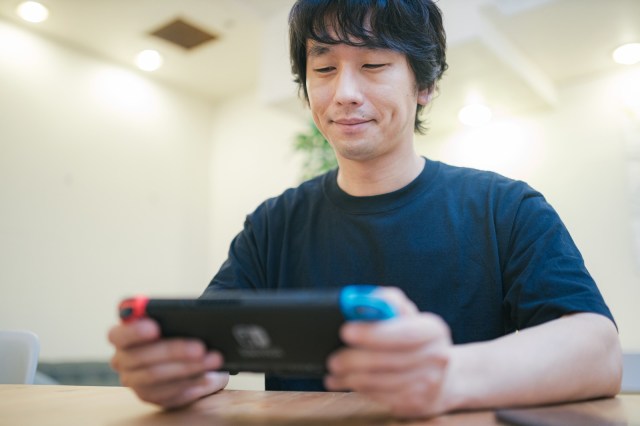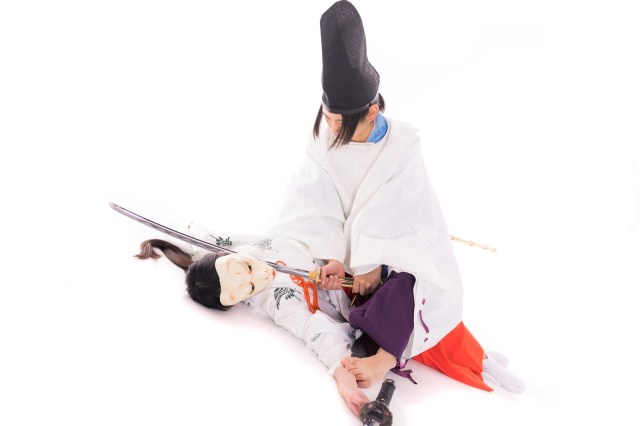
Gamer who loses interest at the climax finds out he’s not the only one.
One of the biggest differences between modern and early-era video game design is the concept of progress. Long ago, most games were single-screen skill challenges. Pac-Man, Galaga, and Asteroids all pretty much showed you your entire range of abilities and roster of foes within the first minute of play.
Nowadays, though, games are designed to continually introduce new play mechanics, environments, and enemy types, as well as plot developments. Ostensibly, the tail end of the game should be the very best part, since it’s when the stakes are highest, the challenge the most complicated, and your arsenal of skills the most sophisticated.
And yet, that’s right about the time Japanese Twitter user and light novel author Fumitoshi Hizen (@HizenHumitoshi) puts down his controller and stops playing.
私、ゲームをプレイしていて、エンディングが近づくとむしろ途端にクリアする気が失せて、しばらく放置してしまうんですが、そういう人いますか?
— 肥前文俊@ラノベ作家・漫画原作 (@HizenHumitoshi) October 11, 2020
“When I’m playing a game and get close to the end, I suddenly lose interest in beating it, and just stop playing it entirely for a while. Does this happen to anyone else?”
To clarify, Hizen isn’t necessarily talking about finally losing his patience after trying to slog through an unenjoyable game. It’s simply a phenomena that he experiences right about the time the developers were probably expecting maximum player excitement. Judging from reactions to his tweet, he’s not alone either, as comments included:
“I never imagined that I wasn’t the only one who feels this way”
“I have exactly this same syndrome as a gamer.”
“I get all the way up to the final part, then I go back to the beginning and start over instead.”
“I usually stop playing Pokémon when it’s time to fight the Elite Four.”
So what causes this? Sifting through the responses, a couple common themes pop up, one involving opposite-end-of-the-spectrum reactions to gameplay evolution. In terms of gameplay, a fun game needs to give you time to play around with new skills and mechanics after you’ve acquired them. That means you’re probably not going to be getting any broadly useful new ways to play at the very end of the game, which can make the game feel stale in its final chapter. On the other hand, games that do throw the player a major gameplay curveball for the finale can make all the skills they’ve spent the game up until then polishing feel pointless, destroying the sense of the hero’s hard work and determination being what saves the world.
“Strategy games are all about figuring out ways to get the best performance from your characters, and once you’ve done that in the mid-game part, the gameplay starts to feel like data processing.”
“If there’s some weird level design for the last boss’ area, I really lose interest.”
Story also plays a factor. Ordinarily, the climax should compel you to keep playing to see what happens next, but that doesn’t happen for gamers who feel like they can already tell where the story is going.
“I took a six-month break right before the last boss fights in Final Fantasy VII and Devil Summoner. I could predict what was going to happen next, so it felt like the story was already done. And it’s even worse if someone spoils the game’s plot for me.”
“In RPGs, once I know for sure who the last boss is going to be, I can pretty much see everything that’s going to happen with the rest of the plot.”
▼ The mysterious stranger with the creepy mask was the villain all along – what a twist!
There’s also the fact that many games are now trying to be as non-linear as possible, and with dozens of side quests that can be completed in any order or outright ignored, the primary storyline isn’t always particularly substantial or compelling.
“For games with a linear design, I play right on through to the end, since I can’t wait to see what’ll happen next. For games with a more open design, though, like The Elder Scrolls or Fallout, I stop before the end. Those kind of games are fun even if you don’t finish them…you’re enjoying just being a part of that world.”
And then there are those who don’t finish their games not because they don’t like them, but just because they don’t want them to end.
“I got right up to the end of Fallout: New Vegas, but it made me so sad to think about my adventure ending, so I made a new character and started all over.”
“For dating simulators, I can’t bring myself to get the best ending with each and every girl. If I do, I get so sad thinking about how there’s nothing more for me to come back to that game for. That’s why I’ve hardly made any progress in great games like Kanon, Air, and Clannad.”
Ultimately, it looks like the key to making an ending player want to play through is a difficult balancing act. The gameplay can’t just be a dull continuation of what the player has already been doing for hours on end, but it still needs to maintain a connection to the foundation its laid while providing something new. The same goes for the story, in that it can’t be completely predictable, but has to have laid enough groundwork that the emotional payoff is something players will want to see, even if it means bringing the narrative to a close.
Or video game developers can just adopt the Hideo Kojima philosophy.
Source: Twitter/@HizenHumitoshi via Hachima Kiko
Top image: Pakutaso
Insert images: Pakutaso (1, 2)
● Want to hear about SoraNews24’s latest articles as soon as they’re published? Follow us on Facebook and Twitter!
Follow Casey on Twitter, where he pretty much felt like he’d beaten Pokémon Sword after catching a Pikachu and evolving a Magikarp.



 After three years and 10 months, the deepest secret of Nier: Automata has been found【Video】
After three years and 10 months, the deepest secret of Nier: Automata has been found【Video】 Nintendo says there are no game overs, EVER, in upcoming Super Mario Odyssey
Nintendo says there are no game overs, EVER, in upcoming Super Mario Odyssey Japan’s Hardcore Gamer General Election generates different results from casuals survey…sort of
Japan’s Hardcore Gamer General Election generates different results from casuals survey…sort of Manga shows how to fix major modern video game problem: Go old-school when choosing what to play
Manga shows how to fix major modern video game problem: Go old-school when choosing what to play Think you’re a “super player”? Test your gaming habits against this Nintendo relic from the 80s
Think you’re a “super player”? Test your gaming habits against this Nintendo relic from the 80s Foreigner’s request for help in Tokyo makes us sad for the state of society
Foreigner’s request for help in Tokyo makes us sad for the state of society Japanese city loses residents’ personal data, which was on paper being transported on a windy day
Japanese city loses residents’ personal data, which was on paper being transported on a windy day Seaside scenery, history, and so many desserts on Yokohama’s Akai Kutsu【Japan Loop Buses】
Seaside scenery, history, and so many desserts on Yokohama’s Akai Kutsu【Japan Loop Buses】 Should you add tartar sauce to Japanese curry rice? CoCo Ichi makes diners an unusual offer
Should you add tartar sauce to Japanese curry rice? CoCo Ichi makes diners an unusual offer Red light district sushi restaurant in Tokyo shows us just how wrong we were about it
Red light district sushi restaurant in Tokyo shows us just how wrong we were about it Mt. Koya planning to instate visitor’s tax to cope with huge tourist numbers
Mt. Koya planning to instate visitor’s tax to cope with huge tourist numbers McDonald’s new Happy Meals offer up cute and practical Sanrio lifestyle goods
McDonald’s new Happy Meals offer up cute and practical Sanrio lifestyle goods Historical figures get manga makeovers from artists of Spy x Family, My Hero Academia and more
Historical figures get manga makeovers from artists of Spy x Family, My Hero Academia and more New sleep cafe opens in Japan, offers free coffee and luxurious naps to visitors
New sleep cafe opens in Japan, offers free coffee and luxurious naps to visitors Why are the Los Angeles Dodgers wearing the caps from Nagoya’s professional baseball team?
Why are the Los Angeles Dodgers wearing the caps from Nagoya’s professional baseball team? Japanese ramen restaurants under pressure from new yen banknotes
Japanese ramen restaurants under pressure from new yen banknotes French Fries Bread in Tokyo’s Shibuya becomes a hit on social media
French Fries Bread in Tokyo’s Shibuya becomes a hit on social media Studio Ghibli releases new action figures featuring Nausicaä of the Valley of the Wind characters
Studio Ghibli releases new action figures featuring Nausicaä of the Valley of the Wind characters New private rooms on Tokaido Shinkansen change the way we travel from Tokyo to Kyoto
New private rooms on Tokaido Shinkansen change the way we travel from Tokyo to Kyoto Tokyo Tsukiji fish market site to be redeveloped with 50,000-seat stadium, hotel, shopping center
Tokyo Tsukiji fish market site to be redeveloped with 50,000-seat stadium, hotel, shopping center All-you-can-drink Starbucks and amazing views part of Tokyo’s new 170 meter-high sky lounge
All-you-can-drink Starbucks and amazing views part of Tokyo’s new 170 meter-high sky lounge Beautiful Ghibli sealing wax kits let you create accessories and elegant letter decorations【Pics】
Beautiful Ghibli sealing wax kits let you create accessories and elegant letter decorations【Pics】 Studio Ghibli releases Kiki’s Delivery Service chocolate cake pouches in Japan
Studio Ghibli releases Kiki’s Delivery Service chocolate cake pouches in Japan New definition of “Japanese whiskey” goes into effect to prevent fakes from fooling overseas buyers
New definition of “Japanese whiskey” goes into effect to prevent fakes from fooling overseas buyers Our Japanese reporter visits Costco in the U.S., finds super American and very Japanese things
Our Japanese reporter visits Costco in the U.S., finds super American and very Japanese things Studio Ghibli unveils Mother’s Day gift set that captures the love in My Neighbour Totoro
Studio Ghibli unveils Mother’s Day gift set that captures the love in My Neighbour Totoro More foreign tourists than ever before in history visited Japan last month
More foreign tourists than ever before in history visited Japan last month New Pokémon cakes let you eat your way through Pikachu and all the Eevee evolutions
New Pokémon cakes let you eat your way through Pikachu and all the Eevee evolutions Sales of Japan’s most convenient train ticket/shopping payment cards suspended indefinitely
Sales of Japan’s most convenient train ticket/shopping payment cards suspended indefinitely Sold-out Studio Ghibli desktop humidifiers are back so Totoro can help you through the dry season
Sold-out Studio Ghibli desktop humidifiers are back so Totoro can help you through the dry season Japanese government to make first change to romanization spelling rules since the 1950s
Japanese government to make first change to romanization spelling rules since the 1950s Ghibli founders Toshio Suzuki and Hayao Miyazaki contribute to Japanese whisky Totoro label design
Ghibli founders Toshio Suzuki and Hayao Miyazaki contribute to Japanese whisky Totoro label design Doraemon found buried at sea as scene from 1993 anime becomes real life【Photos】
Doraemon found buried at sea as scene from 1993 anime becomes real life【Photos】 Tokyo’s most famous Starbucks is closed
Tokyo’s most famous Starbucks is closed One Piece characters’ nationalities revealed, but fans have mixed opinions
One Piece characters’ nationalities revealed, but fans have mixed opinions We asked a Uniqlo employee what four things we should buy and their suggestions didn’t disappoint
We asked a Uniqlo employee what four things we should buy and their suggestions didn’t disappoint Princesses, fruits, and blacksmiths: Study reveals the 30 most unusual family names in Japan
Princesses, fruits, and blacksmiths: Study reveals the 30 most unusual family names in Japan Video shows that Street Fighter V’s story mode is so easy even a baby can beat it 【Video】
Video shows that Street Fighter V’s story mode is so easy even a baby can beat it 【Video】 Gamer completes ‘The Legend of Zelda: Ocarina of Time’ blindfolded
Gamer completes ‘The Legend of Zelda: Ocarina of Time’ blindfolded Japanese gamers with “Multiplay Phobia” avoid online play so they won’t cause trouble for others
Japanese gamers with “Multiplay Phobia” avoid online play so they won’t cause trouble for others We played RESIDENT EVII, aka Bioha7ard, aka Resident Evil 7, at Tokyo Game Show
We played RESIDENT EVII, aka Bioha7ard, aka Resident Evil 7, at Tokyo Game Show Life imitates (Sword) Art (Online) as Japanese gamers find they can’t log out of online RPG
Life imitates (Sword) Art (Online) as Japanese gamers find they can’t log out of online RPG Keep yourself entertained during long loo breaks with poo-themed mobile game【TGS 2015】
Keep yourself entertained during long loo breaks with poo-themed mobile game【TGS 2015】 Legend of Zelda’s traveling Koroks set to travel to our homes as adorable plushies from Japan
Legend of Zelda’s traveling Koroks set to travel to our homes as adorable plushies from Japan Amahiko Sato becomes first pro shogi player in history to lose game for not wearing face mask
Amahiko Sato becomes first pro shogi player in history to lose game for not wearing face mask How to play Go, the game that humans keep losing to Google’s highly intelligent computer brain
How to play Go, the game that humans keep losing to Google’s highly intelligent computer brain And now, the principal percussionist for a German orchestra playing Rossini on Taiko no Tatsujin
And now, the principal percussionist for a German orchestra playing Rossini on Taiko no Tatsujin 6 things people in Japan should watch out for when Pokémon Go lands in the country
6 things people in Japan should watch out for when Pokémon Go lands in the country Japanese gamers anxious to get hands on South Korea’s latest hit: Destiny Child 【Pics, Videos】
Japanese gamers anxious to get hands on South Korea’s latest hit: Destiny Child 【Pics, Videos】 Dating simulator girlfriends reject human boyfriends’ kisses due to game/heartbreaking bug
Dating simulator girlfriends reject human boyfriends’ kisses due to game/heartbreaking bug Ramen oil gathering game Ramen Oil Pecking Simulator coming to Steam soon!
Ramen oil gathering game Ramen Oil Pecking Simulator coming to Steam soon! Final Fantasy XVI will draw on “anguish you can only understand once you become an adult”
Final Fantasy XVI will draw on “anguish you can only understand once you become an adult”
Leave a Reply